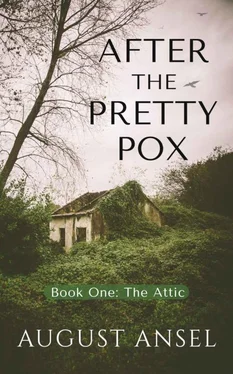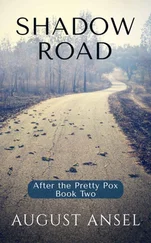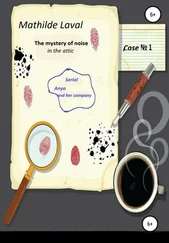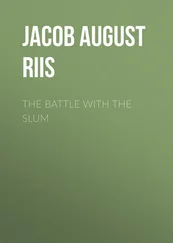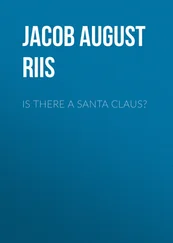They doubled back to the path and half-trotted toward the clearing. Here the wind was an invisible tsunami in the head-high grass, flinging dead leaves everywhere in papery brown pinwheels. The first trap was empty. And the second. They skimmed the edge of the tree line from trap to trap, both of them wordless and frustrated. At the fourth post, finally, something dangled—but it was obvious from a distance that it was something small. A gray squirrel. Meaty, but even a fat squirrel wasn’t enough to share between them, not even for a single meal. It was freshly dead, though—one thing to be grateful for.
Arie slipped the line and knelt to gut the animal. Handy looked around, weirdly antsy, chewing at his mustache and top lip. He crouched near Arie and put his head close to hers. “You finish this,” he whispered. The instinct they both had to get this done quickly and quietly was, rather than reassuring, amplifying a sense of urgency. “I’m going to cut up through the trees and try to snag something else. Another squirrel. Maybe a quail.”
She paused, knife in hand, looked at the day flinging itself in rattling gray chaos around them. She looked into his steady green eyes. His beard and hair streamed back in the wind. “This won’t take me long, Brother,” she said. “Meet me at the top of the path.”
“Give me a slow count of five hundred. You can whistle?”
“I can.”
“Two, short and loud. Whoever gets there first,” he said. “Same in response.”
“I’m cutting. Get on it,” Arie told him. He took off in an easy jog. At the edge of the clearing he slowed to a walk and disappeared into the trees.
Her fingers were stiff with cold and it took a little longer to skin and gut the squirrel than usual, but it was a job she could manage in her sleep. The big margarine tub was in her tow sack, half filled with salt. She dropped the squirrel in, curling its body to fit. A sudden movement in the corner of her eye jerked her to attention. One of the last snares had sprung, and whatever was caught thrashed the small sapling back and forth. It felt like a gift, a little more meat for the road. She snapped the lid onto the plastic tub and gave it a gentle shake to cover the meat, hurried over to the fresh catch—all the while making that slow count in her head.
Closer to the flailing animal, Arie stopped short. It was a gray fox, straining and snarling. Even in its extremity, she saw the clear evidence of its illness. Three hundred ninety-eight. With only the short spear there was no way she could get near enough to kill it, and cutting it free was even more dangerous. No time. Tucking her chin into the collar of her coat, she hurried out of the clearing, into the woods and up the path.
Four hundred forty-six. Four hundred forty-seven. The trees thinned. Dead power lines became visible. The noise of the wind in the woods made a sudden thrashing to her right, her left. Behind her. She tried not to look. Had to look. The last three feet, four hundred eighty-two, heart skittering.
The top of the path. She stopped, breathed. Quieter up here. The house looked the same as always. The street was empty. Five hundred. She curled her tongue and whistled the signal. The sound was a sharp slap on the face of the day, but a brief one, swallowed by the wind. She listened—no response. Five hundred twenty-six.
Maybe I took longer than I thought. She looked at the house again. Perhaps Handy had gotten here first, gave up waiting and went inside. Her gut knew better—he’d have waited—but her reptile brain was urging her to take cover. Go, go, go.
Hurrying up the street, across the yard, alongside the house, she glanced repeatedly back over her shoulder. Each time she saw the same nothing—no Handy rushing to catch up, no one following at all.
“Curran,” she said, rapping softly on the back door. Inside, the dead refrigerator was shoved aside in short, deliberate bursts, and Renna opened. Arie squeezed through and helped wrestle it back in place.
“Where’s Handy?” Renna said.
Not here, then. Arie’s heart sank. She secured the rope around the fridge. “We separated. He’s…he’ll be here any moment.” Even in her own ears, the worry was plain in her voice. “Why are you watching this damned door alone? Where’s Curran?”
Renna’s face had gone deathly pale. “He got worried about the weather,” she said. “He wanted to get Talus outside and check houses before it rained.”
“Left you here alone? Damned fool,” said Arie, slapping an open palm on the side of the refrigerator, hard enough to hurt. She was cursing herself and Handy as much as she was Curran.
“Only for a little while,” Renna said, sounding young and defensive. “I told him it was all right.” Her voice was swelling into a register of dread that Arie was afraid would blossom into panic if she didn’t quell it.
“Never mind,” Arie said. Her own pulse rushed dully in her temples. “I’ll go up top for a look.” Renna had brought down new bedrolls and laid them on the empty counter, but there was nothing immediately useful here. “Come up with me,” she said, grabbing her arm. They hurried through the house, Renna limping slightly but keeping up, her dark eyes wide. “You need a weapon, and you need it on you all the time.” How the hell am I just now telling her this? Arie thought. Damned fool. Damned fool.
She went up the inside hatch first, letting Renna negotiate the climb by herself. At the top of the ladder she grabbed the binoculars where they hung and went out the sky panel. If Curran and Talus were on this block, she might be able to see and signal them home. The wind was fierce on the exposed roof, making her eyes water. Her long hair flew around her in a wild silver tangle, and she had to brace her feet widely apart to keep from being pushed off balance. She peered into the overgrown yards around her. Children’s play structures rotted and rusted. Blackberry vines and untended garden ivy buckled house siding and pushed through cracked window sashes. Useless vehicles sat neatly in most driveways, tires flat, batteries dead, gasoline contaminated and sour.
“Do you see them?” Renna was on the ladder so that just her head protruded from the sky panel. She squinted against the wind.
“Not yet,” Arie said. She scuttle-hunched to the far edge, where the rope ladder lay in a heap. Her own yard was empty. She straightened enough to scan the path out of the gulch again. When she did, her gut went cold and she dropped the binoculars.
They had him.
“Hail, there.” Four of them walked Handy out of the trees. The man who had called to her was in point position. Two others, one wearing a bright-orange knit cap and strapped with a compound bow, the other carrying a bulging canvas pack, pulled Handy along by the arms. A fourth man brought up the rear. He carried a brutal length of metal pipe over one shoulder and swiveled his head from side to side, keeping close watch in all directions.
Arie looked down at Renna. The girl’s face was a gray mask of fear. Dropping onto one knee, she was, for a moment, out of their sight. “Find a knife,” she hissed, “and stay down.”
“Come on back, Gramma—we already saw you, no sense trying to cover up now.”
Arie stood. She could hear Renna running through the attic, her pace stuttery and uneven. Arie didn’t dare glance down again; she must hold the attention of these men as long as she could.
“Who are you?” She made her voice quaver slightly.
The lead man laughed, a simple, easy laugh, like a man watching a card trick. “It’s pretty obvious, isn’t it. We’re the men who have your boy.”
“My boy?” said Arie. “I don’t have one. Never did. I’m Null.” She was still in Granny’s heavy coat. She pulled one sleeve past the elbow and bared the livid scar to them.
Читать дальше
